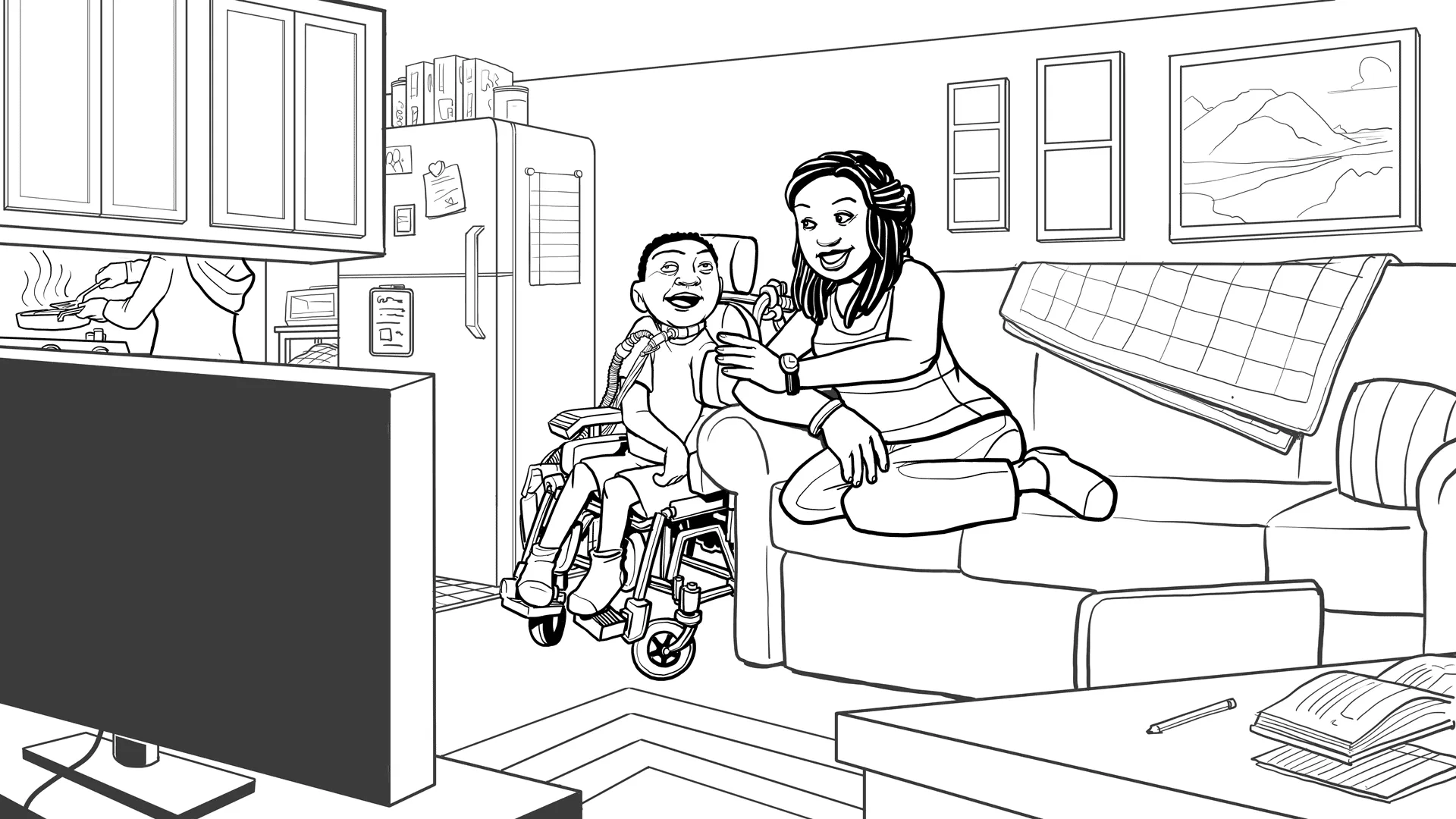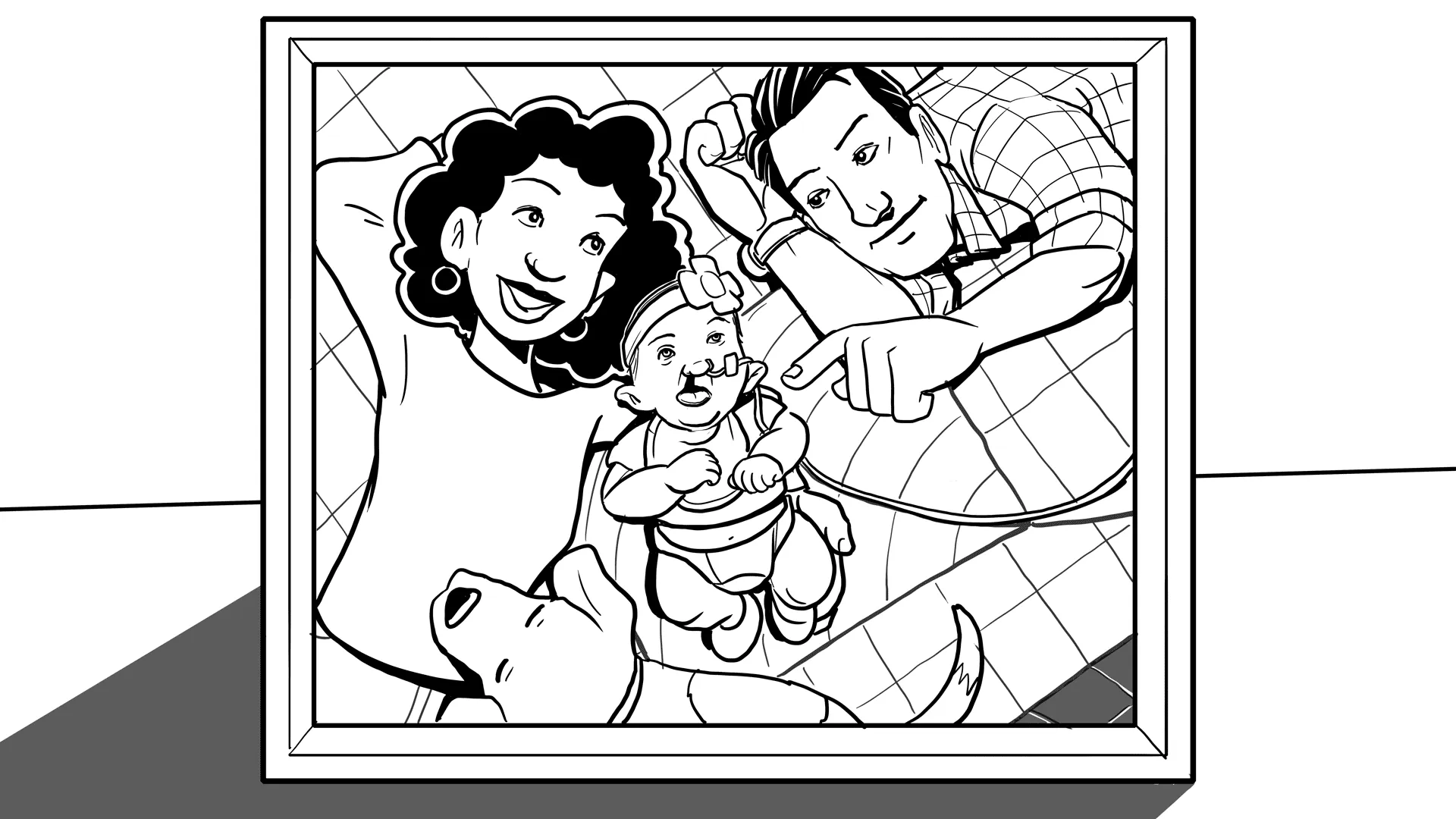Expressing your preferences and concerns
You might have a different point-of-view than your medical team on some issues. It can be challenging, but it’s important to tell them your preferences.
You can listen to two different family experiences below.

Kiana: At the end of the day, my son is my son and I get to choose. I see Devin for who he really is. I didn’t care about his developmental problems. If a trach was going to help him, it was going to help him whether or not he has limited abilities. He is happy. He doesn’t know any different. The trach helps him.
You know what one doctor told me? She said that a trach wouldn’t be a good idea for Devin because his brain is too severely injured. She said she didn’t think he had any quality of life. I couldn’t believe she said that, she had only known Devin for a week! And Devin’s dad agreed with her. That was so hard to take. I mean, I am with Devin every day, I take care of him, I am the one who knows Devin! His impairment is hard but he doesn’t know any different. I guess I get where they were coming from, but I knew Devin had so much more life to live. And, he has a good life, even with his problems.
That doctor didn’t see him at home, she didn’t know. His dad didn’t know him too well either, he only saw what he couldn’t do. I think he just couldn’t take it with all of Devin’s new medical issues and the equipment; he really didn’t want to go forward with the trach but said it was my decision.

Morgan: My only regret is that I didn’t learn to advocate for Ashley sooner. To me, it seemed hard for the doctors to talk about Ashley dying. They could easily describe doing more tests or procedures or medicines, but they just seemed uncomfortable talking about what would happen if we didn’t do those things. We had never been through anything like this before, we needed help understanding all the different options.
Matt: For me, it was hard when we could not get clear information about what Ashley’s life would look like without machines. We knew that she would be born with serious health problems, that her time with us would be short. We knew some families might have had an abortion, but we told the doctors that was not an option for us. After that, it seemed like they sort of assumed that we wanted, I don’t know, like heroic measures for Ashley.
Morgan: The best thing was that Matt and I were on the same page. We did not want Ashley to suffer. We wanted to bring her here, to our home, with our family, to love her and spoil her.
Matt: We talked with some other parents, and they helped us come up with some ideas and questions for the doctors. Once we got hooked up with hospice, we finally understood more about what might happen for Ashley after she was born. About how we could give her the best life possible.